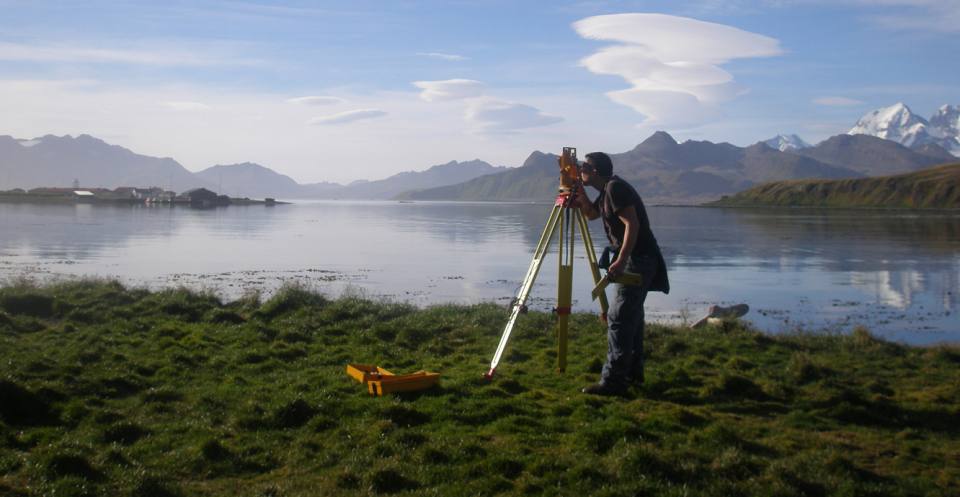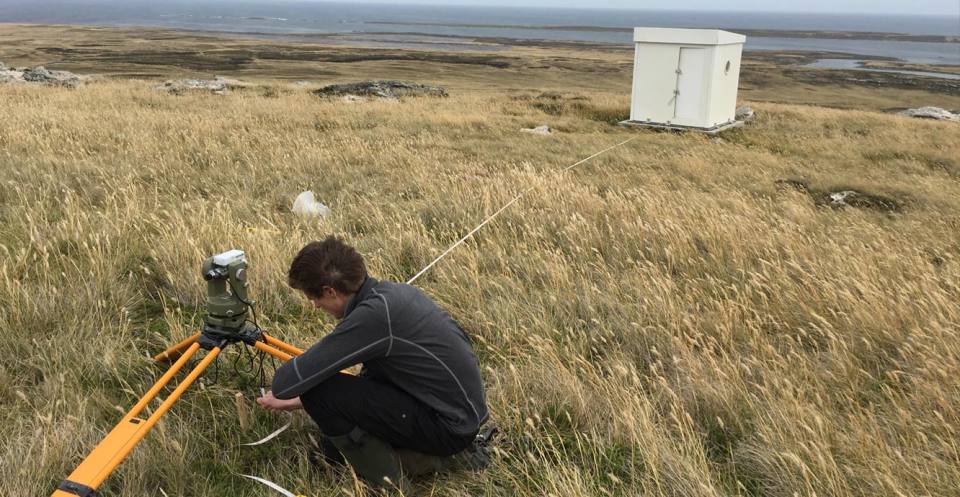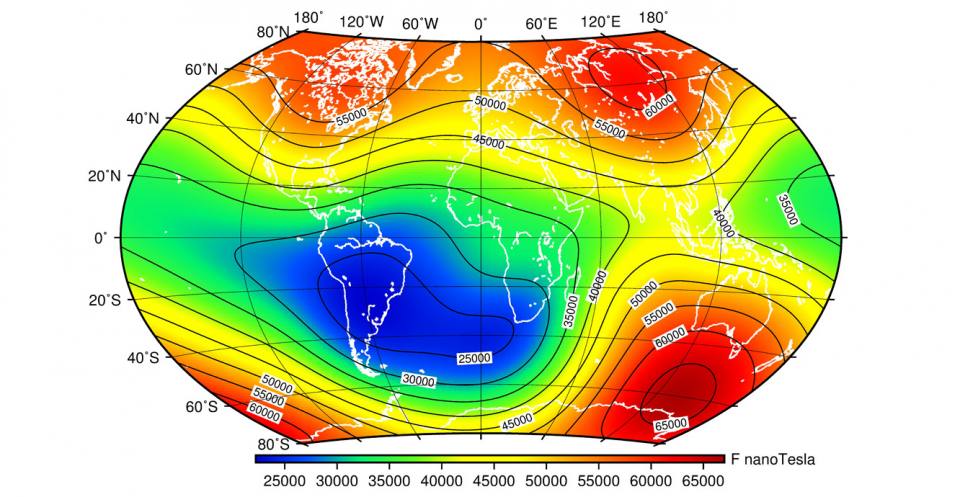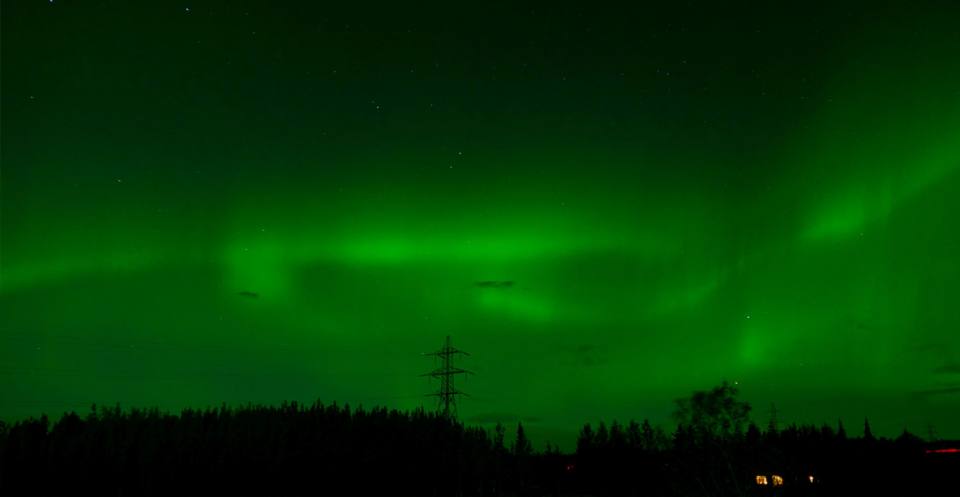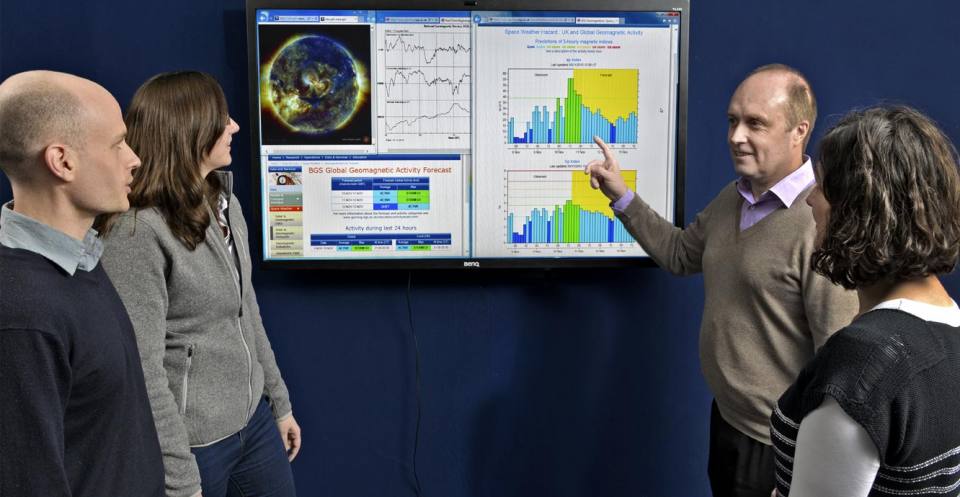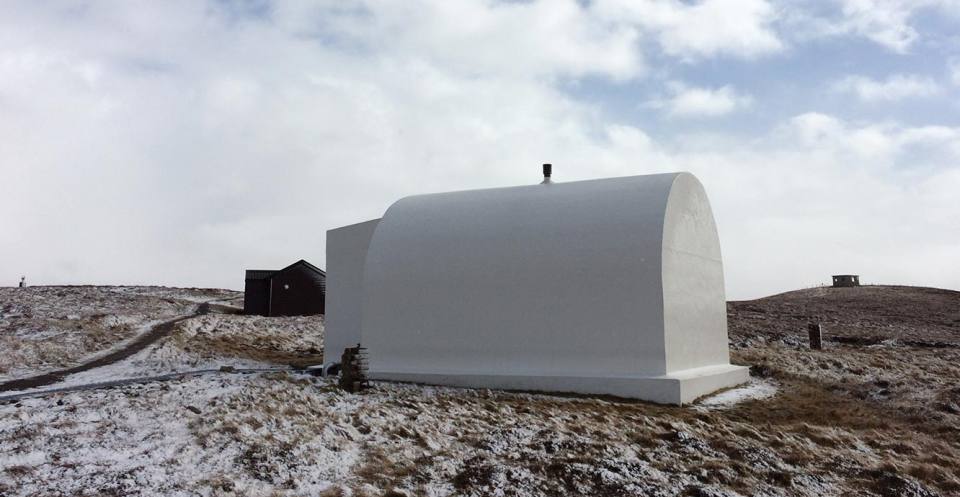BGS’s geomagnetism science capability measures, records, models and interprets variations in the Earth’s magnetic field. Our data and research help to develop scientific understanding of the solid Earth and its atmospheric and space environments and help to extend our knowledge of geomagnetic hazards and their effects. We also provide a range of geomagnetic data, products and services to industry and academia and we use our insights and knowledge to inform the public, government and industry.
Our remit includes continuous geomagnetic monitoring across the UK. We therefore operate three geomagnetic observatories in the UK:
- Lerwick, Shetland
- Eskdalemuir, Scottish Borders
- Hartland, north Devon
We also operate magnetic observatories overseas:
- Ascension Island and Sable Island, Canada
- Port Stanley, Falkland Islands
- King Edward Point, South Georgia
We also oversee operations and maintain the magnetic observatories at Prudhoe Bay, Alaska (USA) and Fort McMurray, Alberta (Canada).
Our observatory work and the data we collect are just part of our core function: ‘long-term geomagnetic monitoring and allied research to improve our understanding of the Earth and its geomagnetic processes, environments and hazards.’
In support of this core function, we aim to be recognised internationally as a world leader in:
- measuring and recording the Earth’s natural magnetic field
- modelling the magnetic field and understanding its various sources
- modelling and understanding geomagnetic hazard, a component of the space-weather hazard to technology and society
- delivering tailored geomagnetic data, products and services to academia, business and the public
- providing knowledge and information for all sectors of society on geomagnetism science: what it tells us about the Earth and how it can be used in practical ways
Find out more about our research
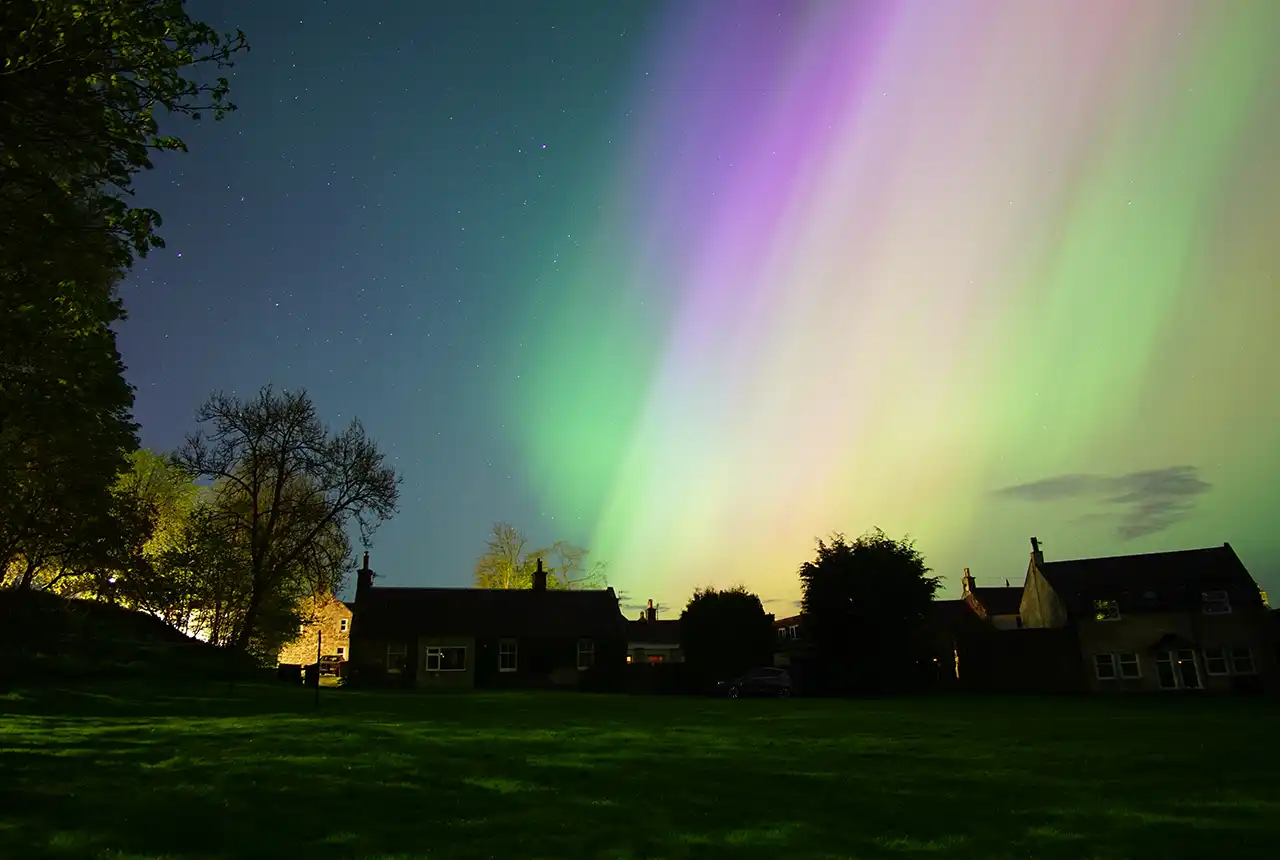
BGS Geomagnetism website
Our data and research help to develop scientific understanding of the solid Earth and extend our knowledge of geomagnetic hazards.
Related news
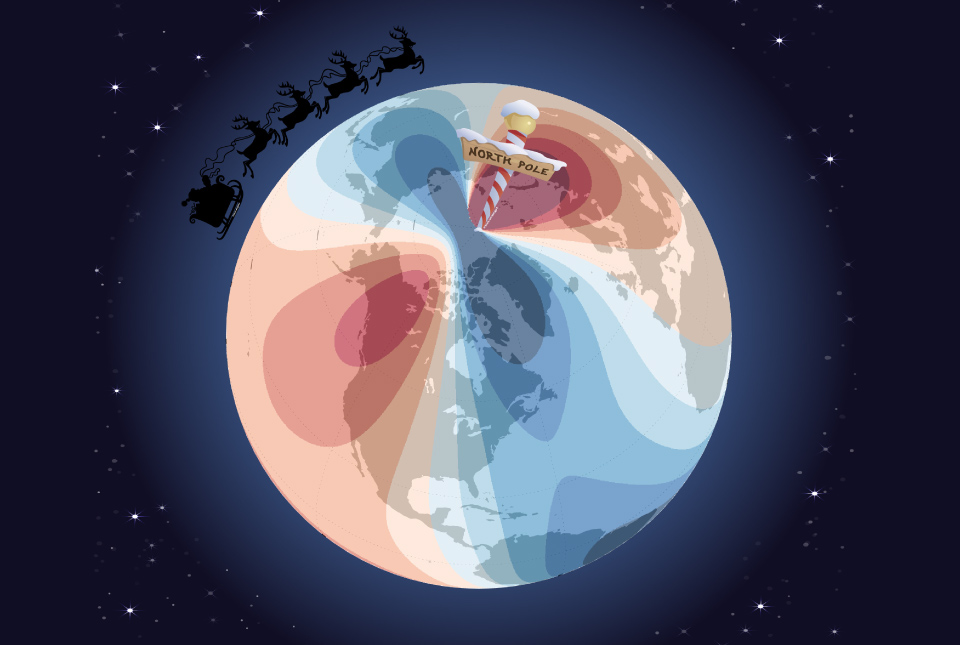
Airlines, shipping companies and sleigh drivers rush to update crucial navigation systems ahead of Christmas rush
17/12/2024
Release of major upgrade to a new model tracking magnetic north prompts global reset of satellite tracking systems across trade and passenger transport routes.
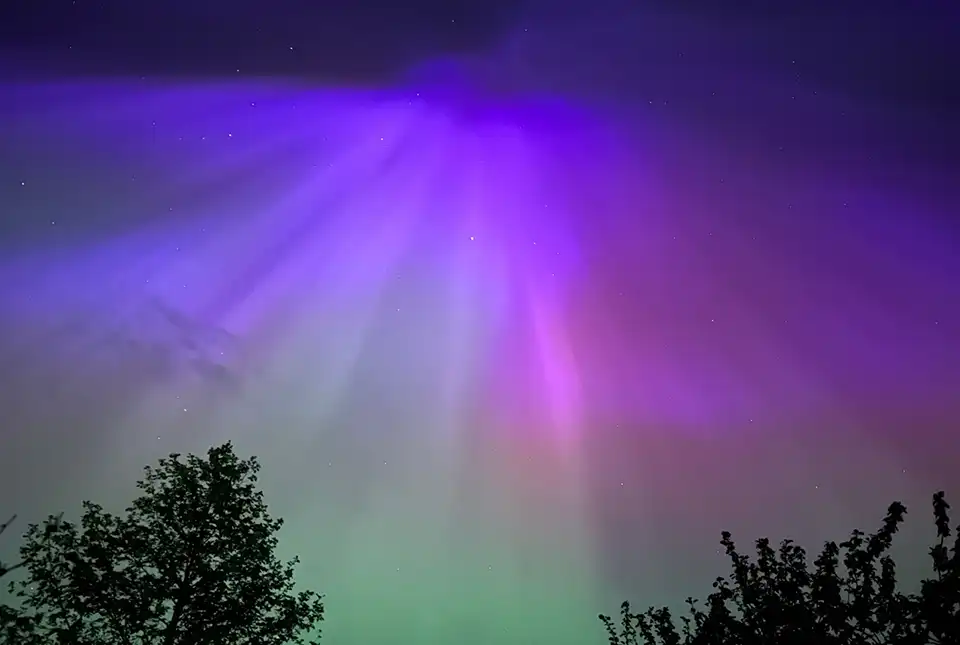
A-roaring display
16/05/2024
The dazzling and colourful aurora borealis, or northern lights, observed by many across the UK last weekend was one of the most extreme and long-lasting geomagnetic storms recorded in the last 155 years.

BGS leads update to maps of the Earth’s magnetic field
04/04/2024
The International Geomagnetic Reference Field, used for navigation on mobile phones and in space, is updated every five years.

Will 2024 be the Year of the Aurora?
23/02/2024
The Sun’s approximate eleven-year activity cycle is predicted to peak this year, prompting BGS scientists to anticipate that 2024 will be the ‘Year of the Aurora’.

From the Earth’s core to outer space: understanding the magnetic field
Event on 26/03/2024
A special webinar focusing on our our geomagnetism research, including how we measure the magnetic field, everyday applications and mitigating the threats of space weather.

Observing magnetic fields: 100 years of data
02/08/2022
Marking the centenary of the Lerwick Geophysical Observatory.

UK’s geomagnetic blind spots tackled with new observatories
28/07/2022
Three new geomagnetic observatories have been installed across the UK to fill in the country’s ‘blind spots’ and tackle the risk posed by space weather.

The Great North Run
28/05/2021
The directions of true, grid and magnetic north will, for the first time, coincide at various locations in Great Britain between 2022 and 2026.

Geomagnetism with Sarah Reay
10/02/2021
Sarah Reay discusses why we study the Earth’s magnetic field, the best location for a geomagnetic observatory, and tips for spotting the Aurora Borealis.

Geomagnetism
Measuring, recording and interpreting variations in the Earth’s magnetic field including those caused by space weather
You may also be interested in

Geodesy and Earth observation
Developing and using innovative Earth observation techniques to characterise and monitor Earth processes that affect lives and livelihoods.

Glacier monitoring
The BGS uses cutting-edge technology in Iceland to monitor how glaciers and their surrounding landscape change over time, and how they respond to climate.



